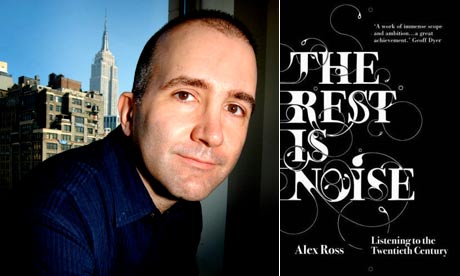

That is where Alex Ross reveals his purpose: “Each chapter cuts a wide swath through a given period, but there is no attempt to be comprehensive: certain careers stand in for certain scenes, certain key pieces stand in for entire careers, and much great music is left on the cutting-room floor” (p. The index provides a detailed overview of just who and what are discussed in the book. That way, names you might want to see in the text but that do not appear there will not surprise you. The opera was only five months old, so this early Austrian staging attracted a distinguished audience, which included the composers Mahler, Schoenberg, Puccini, Zemlinsky and Berg.Music librarians have a treasure in this wonderful new book: unlocking the treasure chest itself is best accomplished by reading the index first. Ross chooses to begin his story with a performance of Richard Strauss's Salome at Graz in May 1906. Now, a largely middle-aged, almost exclusively white, audience sat reverently listening to what Ross calls 'Reich's drama of harmony'. This piece, already over thirty years old, once inspired angry walk-outs. While preparing to write this review, I attended a concert by the London Sinfonietta, which included Steve Reich's Music for 18 Musicians. Is this because, as Ross puts it, 'in the classical field it has long been fashionable to fence music off from society, to declare it a self-sufficient language'? Perhaps it is more that, as he also suggests, musical life has 'disintegrated into a … mass of cultures and subcultures'. The same people who can happily queue up to view an exhibition by Picasso, Henry Moore, Andy Warhol or Tracy Emin, shy away from Schoenberg, Tippett, Cage or Birtwistle. Yet as Ross points out in his introduction, there still exists a powerful resistance, even on the part of quite sophisticated listeners, to grapple with modernism in music. Go to the computer, type in Hildegard von Bingen, or Telemann, Prokofiev or Puccini, any name from Adams to Zemlinsky, and you can hear their music in one click. You no longer even need to search for a disc. Through recordings and broadcasting, virtually the whole repertory of Western music can be heard at the flick of a switch. The audience for serious, or classical, music has never been greater than it is now. In his first book, the New Yorker music critic Alex Ross sets out to tell the story of 'twentieth-century classical composition'.


 0 kommentar(er)
0 kommentar(er)
